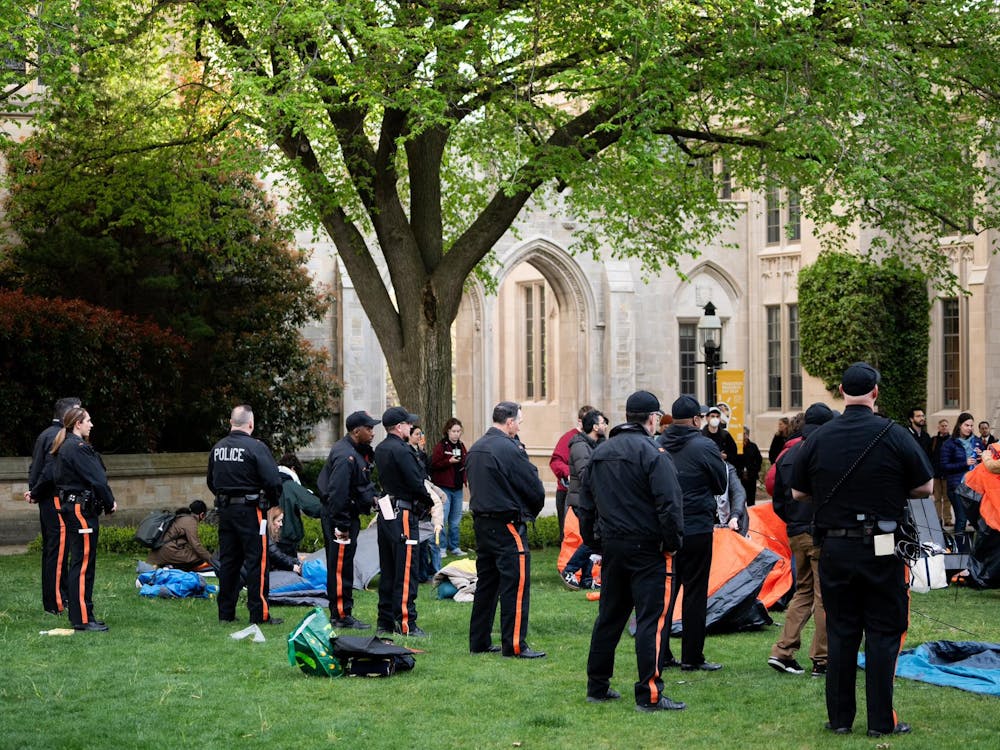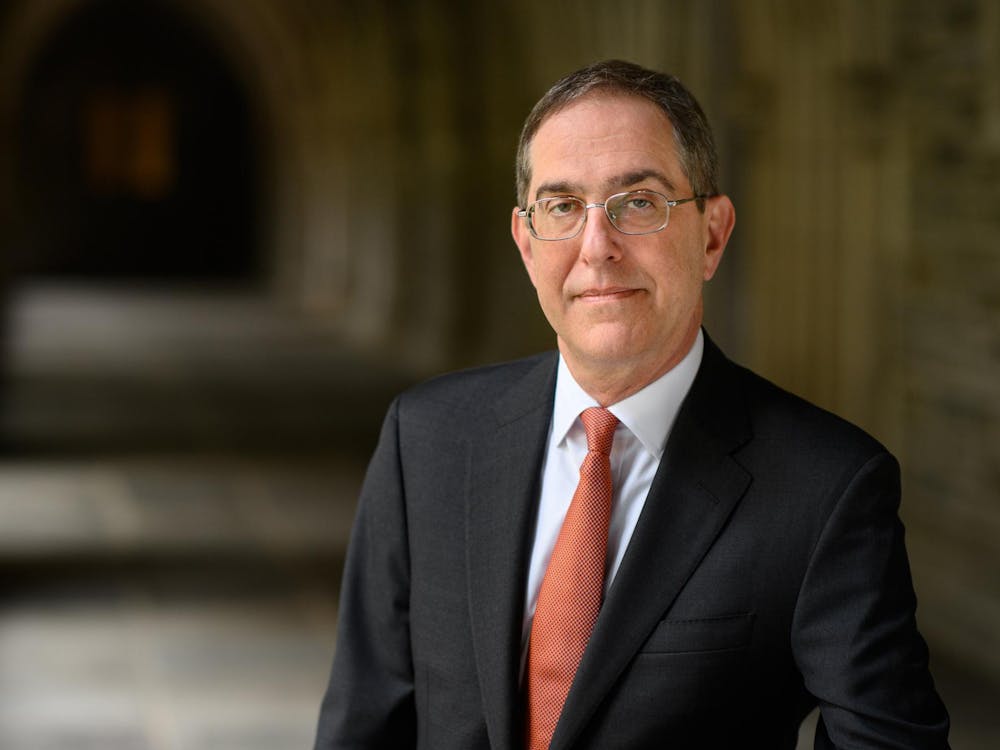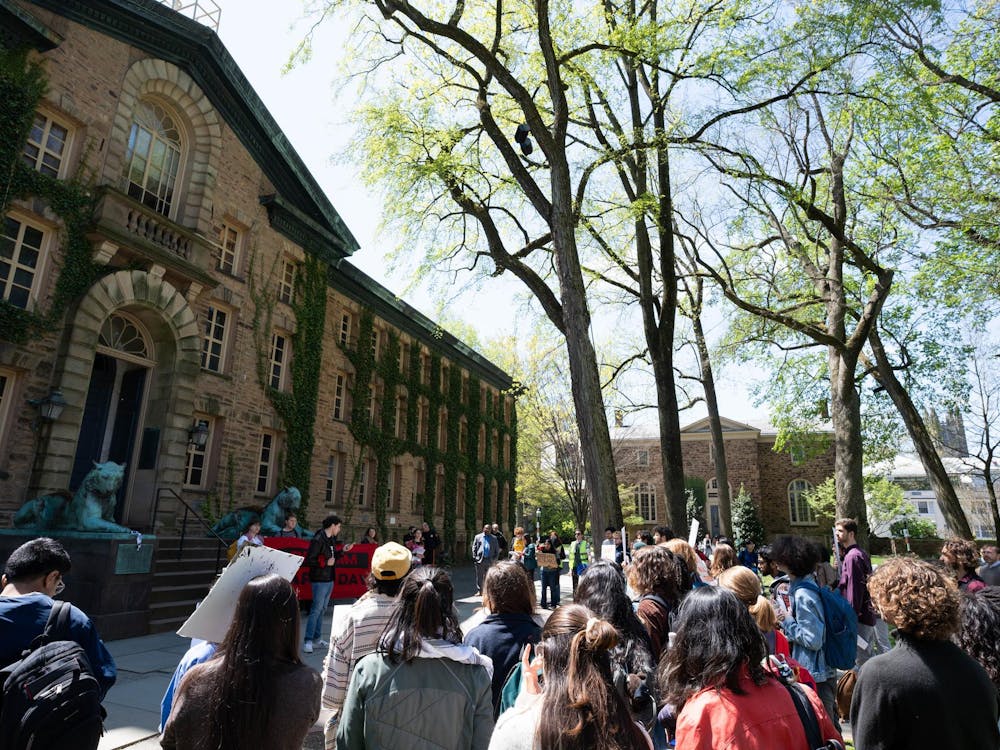We (or, at least, I) entered Princeton ready to immerse ourselves in the life of the mind. The eager admitted student whose soul is imprinted on the pages of my application knew exactly what he wanted out of college. In chemistry or biology or engineering, I would learn the skills necessary to make my fortune and my mark upon the world. That mark, I was sure, would be academic: adding my share of knowledge to the pool the world uses to improve the human condition. However, I didn’t bargain on spending so much time on the “improving” bit that I’d neglect the “human” side.
What nobody managed to explain to me before freshman year was the intensity of it all. For much of the first year, I described academics here as “drinking the nectar of the gods — from a fire hose.” The short semester only increases the pressure coming out of the hose (and the amount which, inevitably, fails to stick with us). Almost by definition, though, University students are excellent at absorbing this sweet, sweet knowledge, so I lapped it up and asked for more. Absorbing that nectar as fast as we can is a priority — so much so that the University all-too-often refuses to accommodate mental illness by reducing courseload, fearing, I suppose, that such a decreased schedule detracts from the true (high-octane) Princeton experience.
This rapid, perpetual work spills over into the social scene. “Work hard, play hard” becomes a mantra. It’s no coincidence that the two supplements marketed so heavily by students over the last year, Luminate and Thrive+, are devoted to optimizing the respective halves of that mantra — the former for helping students concentrate, and the latter for helping mitigate the effects of hangovers. I never much enjoyed nights on the street, perhaps feeling too much nihilism in the urge to have fun like there’s no tomorrow. I feel the same pressure in other frivolous pursuits. With the University Band, whether dancing under Blair Arch or scrambling around the football field, I can’t stop asking myself “Am I having fun yet?” If I’m not working, I should be having as much fun as humanly possible, right?
In the noise of precepts, pregames, problem sets and parties, something quieter is lost. Early freshman year, I found a spiritual home in the small evening gatherings of the Princeton Presbyterians. Weekly meetings gave us a time to be still, to digest Princeton and to remember what we were here for. However, as I joined more organization, wrote more, studied more and played more, I lost that time.
I don’t put much stock in claims of the moral depravity of our generation. However, I was struck by a post in The New York Times last week warning of the danger of teaching our children of the dichotomous nature of facts and opinions, as if there are no moral facts. The author failed to draw as much of a line between moral and scientific truths as I would; it’s far easier to stand up in a lecture hall and say “We know E = mc2” than to declare “Using this knowledge for nuclear destruction is inherently wrong.” Moral “facts” may not be irrefutable. However, the importance of learning moral reasoning is inescapable. Albert Einstein is remembered well for that famous equation, but his most valuable contribution to humanity is his work in shaping how that knowledge was used and the rest of his tireless work for peace.
In the rush, we cannot forget our humanity, or we risk both mental illness and, worse, failing to address societal ills. We have many refuges from the fire-hose of Princeton. With friends in campus ministries, co-op kitchens or eating club lounges, we can be human and explore our hopes, fears, morality and silly moments together. This is something lectures and even precepts do not — cannot — offer. Yet even in these invaluable pockets of humanity, the dehumanizing drive for quantifiable achievement festers. The paradox of Bicker is that the process we use to build comforting communities with like-minded peers becomes just another measure of success, or worse, failure. I have my doubts about the Hose Bicker campaign: we will make of Bicker what we will. As with Bicker, so with Princeton in general, it is up to each individual student to build his humanity around, and in spite of, the intensely driven life surrounding him.
So this spring break, take a break. Catch up with an old friend. Fight for a cause you believe in. Read a book that challenges your most dearly held beliefs. Create something with solely artistic intent. Stroll through Prospect Gardens or the Princeton Cemetery, or through McCosh Courtyard, pondering the words of H. E. Mierow, Class of 1914: “Here we were taught by men and gothic towers democracy and faith and righteousness and love of unseen things that do not die.”
That’s what this place is for: not your job, not even your calling, but your life and the things beyond it. You’ve spent enough time on the tangible this week.
Bennett McIntosh is a chemistry major from Littleton, Colo. He can be reached at bam2@princeton.edu.









